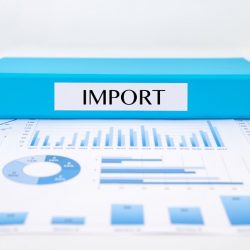There are special procedures for importing goods into the UK. Following the end of the Brexit transition period, the process for importing goods from the EU effectively mirrors the process for all other international destinations.
Businesses, especially those that only trade with EU, should be aware of the rules and be working accordingly. Businesses can make customs declarations themselves or hire a third party such as a courier, freight forwarder or customs agent to do the paperwork.
HMRC lists the following eleven-steps that should be considered when importing goods:
- Check if you need to follow this process. The steps listed below apply if you are moving goods permanently to England, Wales or Scotland (Great Britain) from a country outside the UK or to Northern Ireland from a country outside the UK and the EU. There are different rules for goods that move between Great Britain and Northern Ireland or between Northern Ireland and the EU.
- Get your business ready to import. This includes ensuring you have an Economic Operator Registration and Identification (EORI) number. You also need to check that the business sending you the goods can export to the UK.
- Decide who will make custom declarations and transport the goods.
- Find out the commodity code for your goods.
- Find out if you can delay or reduce your duty payment.
- Check if you need a licence or certificate for your goods.
- Check the labelling, marking and marketing rules.
- Get your goods through customs.
- Claim a VAT refund.
- What to do if you paid the wrong amount of duty or rejected the goods
- Keep invoices and records.
Source: HM Revenue & Customs Wed, 12 May 2021 00:00:00 +0100
